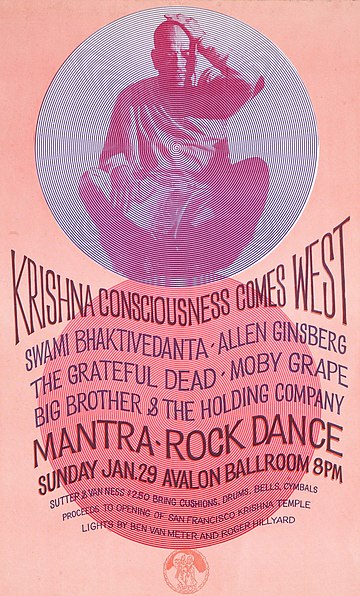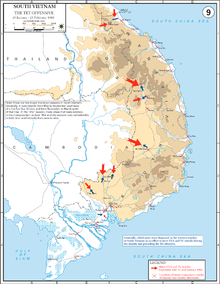The 1960s Portal
The 1960s became synonymous with the new, radical, and subversive events and trends of the period. In Africa the 1960s was a period of radical political change as 32 countries gained independence from their European colonial rulers. Some commentators have seen in this era a classical Jungian nightmare cycle, where a rigid culture, unable to contain the demands for greater individual freedom, broke free of the social constraints of the previous age through extreme deviation from the norm. Christopher Booker charts the rise, success, fall/nightmare and explosion in the London scene of the 1960s. However, this alone does not explain the mass nature of the phenomenon. Several nations such as the U.S., France, Germany and Britain turned to the left in the early and mid 1960s. In the United States, John F. Kennedy, a Keynesian and staunch anti-communist, pushed for social reforms. His assassination in 1963 was a stunning shock. Liberal reforms were finally passed under Lyndon B. Johnson including civil rights for African Americans and healthcare for the elderly and the poor. Despite his large-scale Great Society programs, Johnson was increasingly reviled by the New Left at home and abroad. The heavy-handed American role in the Vietnam War outraged student protestors across the globe, as they found peasant rebellion typified by Ho Chi Minh and Che Guevara more appealing. Italy formed its first left-of-center government in March 1962 with a coalition of Christian Democrats, Social Democrats, and moderate Republicans. Socialists joined the ruling block in December 1963. In Britain, the Labour Party gained power in 1964. In Brazil, João Goulart became president after Jânio Quadros resigned. This is a Featured article, which represents some of the best content on English Wikipedia..
The Voting Rights Act of 1965 is a landmark piece of federal legislation in the United States that prohibits racial discrimination in voting. It was signed into law by President Lyndon B. Johnson during the height of the civil rights movement on August 6, 1965, and Congress later amended the Act five times to expand its protections. Designed to enforce the voting rights protected by the Fourteenth and Fifteenth Amendments to the United States Constitution, the Act sought to secure the right to vote for racial minorities throughout the country, especially in the South. According to the U.S. Department of Justice, the Act is considered to be the most effective piece of federal civil rights legislation ever enacted in the country. The National Archives and Records Administration stated: "The Voting Rights Act of 1965 was the most significant statutory change in the relationship between the federal and state governments in the area of voting since the Reconstruction period following the Civil War". The act contains numerous provisions that regulate elections. The act's "general provisions" provide nationwide protections for voting rights. Section 2 is a general provision that prohibits state and local government from imposing any voting rule that "results in the denial or abridgement of the right of any citizen to vote on account of race or color" or membership in a language minority group. Other general provisions specifically outlaw literacy tests and similar devices that were historically used to disenfranchise racial minorities. The act also contains "special provisions" that apply to only certain jurisdictions. A core special provision is the Section 5 preclearance requirement, which prohibited certain jurisdictions from implementing any change affecting voting without first receiving confirmation from the U.S. attorney general or the U.S. District Court for D.C. that the change does not discriminate against protected minorities. Another special provision requires jurisdictions containing significant language minority populations to provide bilingual ballots and other election materials. (Full article...)This is a Good article, an article that meets a core set of high editorial standards.
The Partial Test Ban Treaty (PTBT), formally known as the 1963 Treaty Banning Nuclear Weapon Tests in the Atmosphere, in Outer Space and Under Water, prohibited all test detonations of nuclear weapons except for those conducted underground. It is also abbreviated as the Limited Test Ban Treaty (LTBT) and Nuclear Test Ban Treaty (NTBT), though the latter may also refer to the Comprehensive Nuclear-Test-Ban Treaty (CTBT), which succeeded the PTBT for ratifying parties. Negotiations initially focused on a comprehensive ban, but that was abandoned because of technical questions surrounding the detection of underground tests and Soviet concerns over the intrusiveness of proposed verification methods. The impetus for the test ban was provided by rising public anxiety over the magnitude of nuclear tests, particularly tests of new thermonuclear weapons (hydrogen bombs), and the resulting nuclear fallout. A test ban was also seen as a means of slowing nuclear proliferation and the nuclear arms race. Though the PTBT did not halt proliferation or the arms race, its enactment did coincide with a substantial decline in the concentration of radioactive particles in the atmosphere. (Full article...)Selected picture - The Mantra-Rock Dance musical event took place on January 29, 1967, at the Avalon Ballroom in San Francisco and came to be dubbed as the "ultimate high" and the "major spiritual event" of the hippie era. It was organized by the early followers of the Hare Krishna movement as a promotional and fundraising effort for their first temple on the West Coast. One of them, Harvey W. Cohen, created the Stanley Mouse inspired promotional poster (pictured). The Mantra-Rock Dance featured the Hare Krishna founder Bhaktivedanta Swami, the countercultural ideologues Allen Ginsberg and Timothy Leary, and leading rock groups the Grateful Dead, Moby Grape, and Janis Joplin with Big Brother and the Holding Company. The event caused the Hare Krishna mantra to be adopted by all levels of the counterculture as a "loose commonality" and a viable alternative to drugs.
Did you know -
Related portalsThis is a Featured article, which represents some of the best content on English Wikipedia..
Malcolm X (born Malcolm Little, later el-Hajj Malik el-Shabazz; May 19, 1925 – February 21, 1965) was an African-American revolutionary, Muslim minister and human rights activist who was a prominent figure during the civil rights movement. A spokesman for the Nation of Islam (NOI) until 1964, he was a vocal advocate for Black empowerment and the promotion of Islam within the African-American community. A posthumous autobiography, on which he collaborated with Alex Haley, was published in 1965. Malcolm spent his adolescence living in a series of foster homes or with relatives after his father's death and his mother's hospitalization. He committed various crimes, being sentenced to 8 to 10 years in prison in 1946 for larceny and burglary. In prison, he joined the Nation of Islam, adopting the name Malcolm X to symbolize his unknown African ancestral surname while discarding "the white slavemaster name of 'Little'", and after his parole in 1952 quickly became one of the organization's most influential leaders. He was the public face of the organization for 12 years, advocating Black empowerment and separation of Black and White Americans, and criticizing Martin Luther King Jr. and the mainstream civil rights movement for its emphasis on non-violence and racial integration. Malcolm X also expressed pride in some of the Nation's social welfare achievements, such as its free drug rehabilitation program. From the 1950s onward, Malcolm X was subjected to surveillance by the Federal Bureau of Investigation (FBI). (Full article...)This is a Good article, an article that meets a core set of high editorial standards.
Keith Richards (born 18 December 1943) is an English musician, songwriter, singer and record producer who is an original member, guitarist, secondary vocalist, and co-principal songwriter of the Rolling Stones. His songwriting partnership with the band's lead vocalist Mick Jagger is one of the most successful in history. His career spans over six decades, and his guitar playing style has been a trademark of the Rolling Stones throughout the band's career. Richards gained press notoriety for his romantic involvements and illicit drug use, and he was often portrayed as a countercultural figure. First professionally known as Keith Richard, by the early 1970s he had fully asserted his family name. Richards was born in and grew up in Dartford, Kent. He studied at the Dartford Technical School and Sidcup Art College. After graduating, Richards befriended Jagger, Bill Wyman, Charlie Watts, Ian Stewart and Brian Jones and joined the Rolling Stones. As a member of the Rolling Stones, Richards also sings lead on some Stones songs. Richards typically sings lead on at least one song a concert, including "Happy", "Before They Make Me Run", and "Connection". Outside of his career with the Rolling Stones, Richards has also played with his own side-project, The X-Pensive Winos. He also appeared in two Pirates of the Caribbean films as Captain Teague, father of Jack Sparrow, whose look and characterisation was inspired by Richards himself. (Full article...)Selected article -The Tet Offensive was a major escalation and one of the largest military campaigns of the Vietnam War. The Viet Cong (VC) and North Vietnamese People's Army of Vietnam (PAVN) launched a surprise attack on 30 January 1968 against the forces of the South Vietnamese Army of the Republic of Vietnam (ARVN), the United States Armed Forces and their allies. It was a campaign of surprise attacks against military and civilian command and control centers throughout South Vietnam. The name is the truncated version of the Lunar New Year festival name in Vietnamese, Tết Nguyên Đán, with the offense chosen during a holiday period as most ARVN personnel were on leave. The purpose of the wide-scale offensive by the Hanoi Politburo was to trigger political instability in a belief that mass armed assault on urban centers would trigger defections and rebellions. The offensive was launched prematurely in the early morning hours of 30 January in large parts of the I and II Corps Tactical Zones of South Vietnam. This early attack allowed allied forces some time to prepare defensive measures. When the main operation began during the early morning hours of 31 January, the offensive was countrywide; eventually more than 80,000 PAVN/VC troops struck more than 100 towns and cities, including 36 of 44 provincial capitals, five of the six autonomous cities, 72 of 245 district towns and the southern capital. The offensive was the largest military operation conducted by either side up to that point in the war. (Full article...)More Did you know (auto generated)
TopicsCategoriesWikiProjects
Associated WikimediaThe following Wikimedia Foundation sister projects provide more on this subject:
Discover Wikipedia using portals |
One thought on “Cannabaceae”
Leave a Reply
You must be logged in to post a comment.





























Well, that’s interesting to know that Psilotum nudum are known as whisk ferns. Psilotum nudum is the commoner species of the two. While the P. flaccidum is a rare species and is found in the tropical islands. Both the species are usually epiphytic in habit and grow upon tree ferns. These species may also be terrestrial and grow in humus or in the crevices of the rocks.
View the detailed Guide of Psilotum nudum: Detailed Study Of Psilotum Nudum (Whisk Fern), Classification, Anatomy, Reproduction